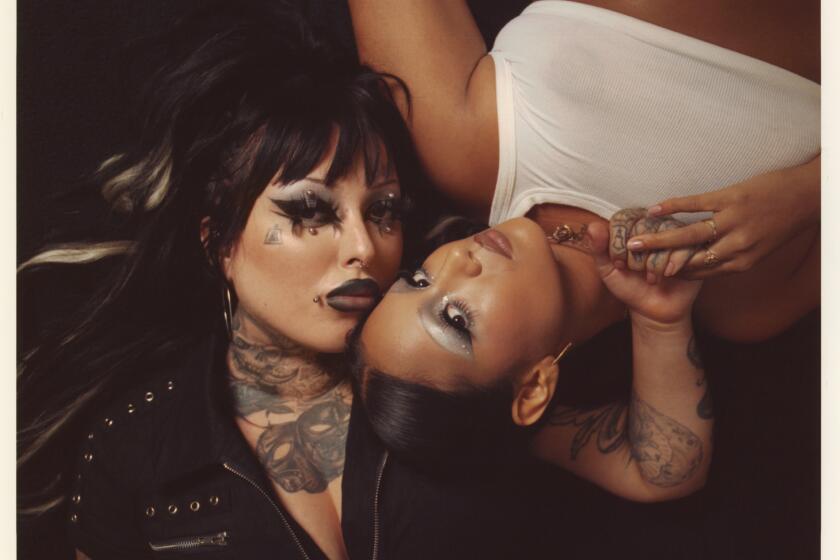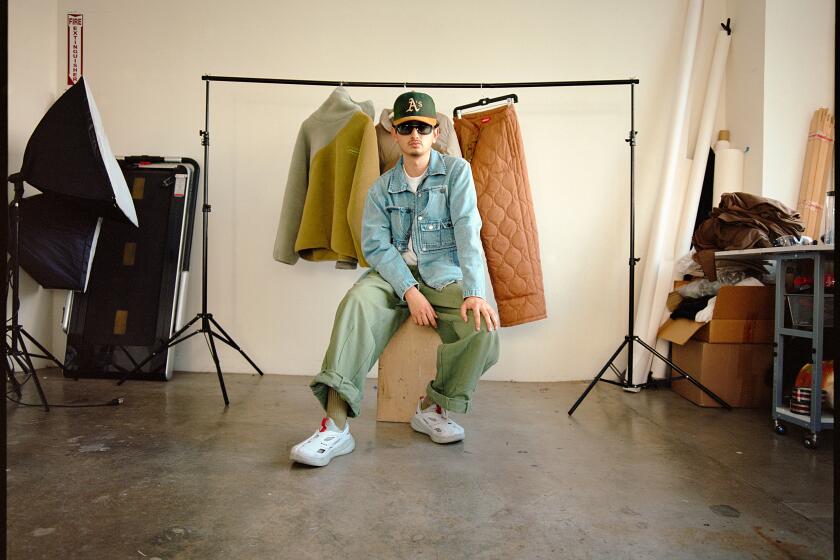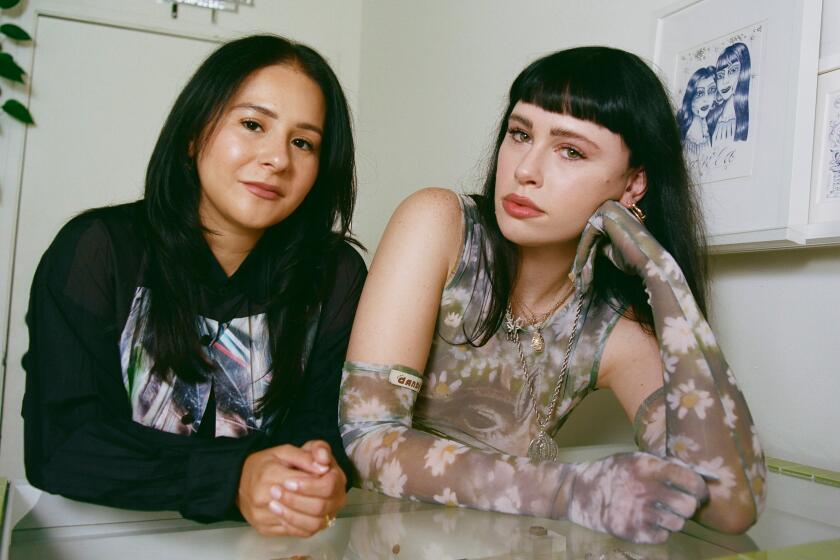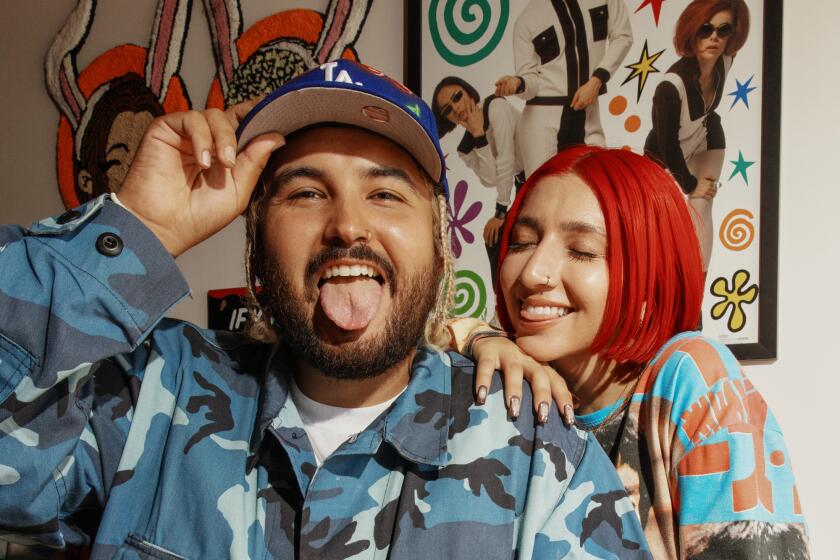- Share via
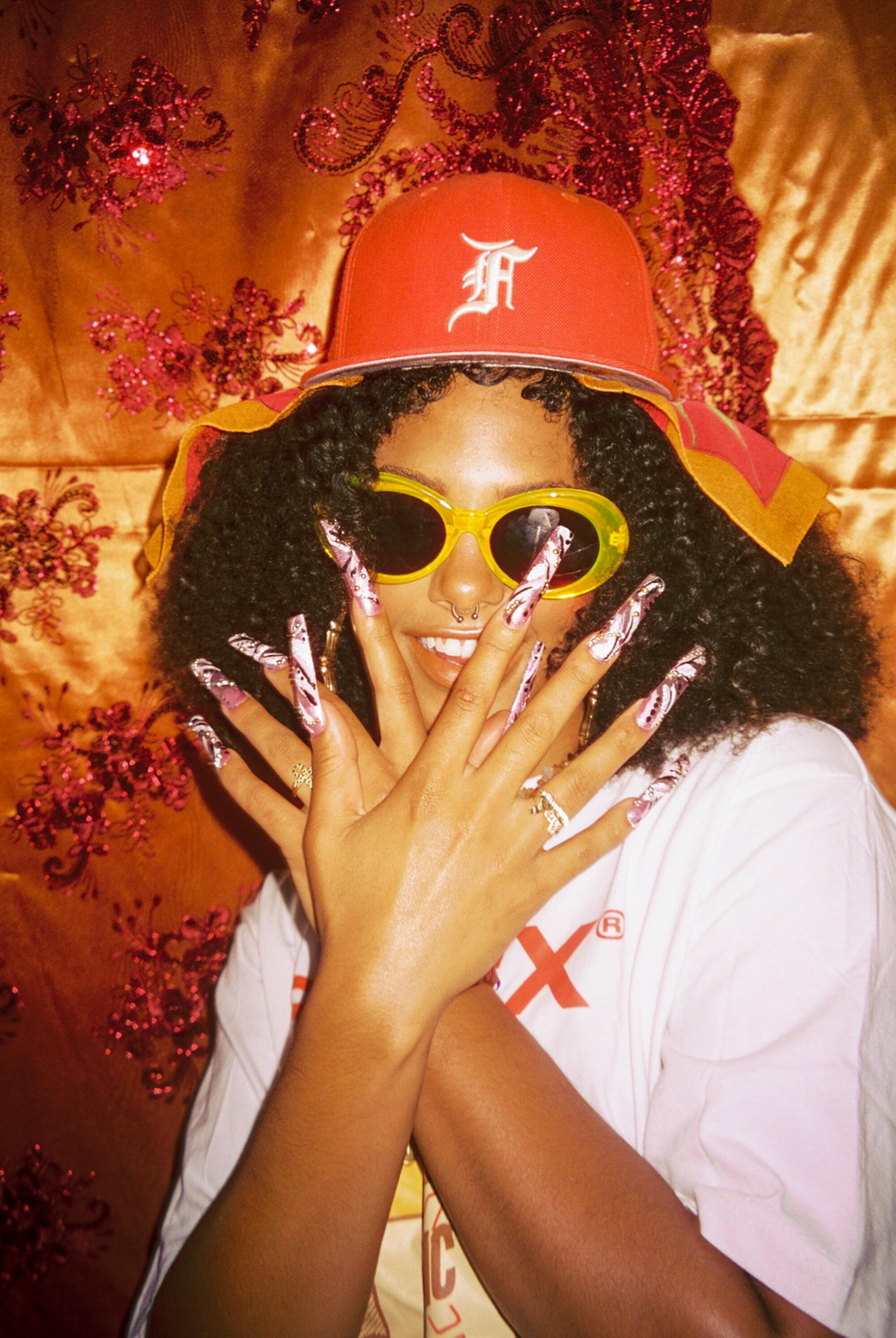
This story is part of Image issue 13, “Image Makers,” a celebration of the L.A. luminaries redefining the narrative possibilities of fashion. Read the whole issue here.
If you were paying attention in 2020, you know Tianna Arata’s name. You may also know her face: sparkling eyes framed by a crown of chocolate-colored curly hair. But chances are you haven’t experienced Arata on her terms. After being arrested during a Black liberation protest in San Luis Obispo two years ago, then being at the center of a campaign to #FreeTianna, the Long Beach resident is at a place now where she’s focused on taking back her image.
Modeling has been her main mode of reclamation. It’s a natural medium for this kind of work, she says, because of the power in the act itself. In Arata’s eyes, modeling is a flex, a statement of self-worth. “The clothes, location and everything makes it,” Arata, 22, says. “But models are also what make the image. You’re hiring somebody specifically for their look.”
While she started dabbling in the practice as a teenager in San Luis Obispo, L.A. has cracked this world open for Arata. It’s allowed her to break out of the identity she’s felt boxed into for the last two years — the organizer who was arrested and is still facing charges — into a more fully realized version of the artist she’s always been. Since moving to Long Beach from SLO last year, the Portland, Ore., native has modeled for the Hundreds and Foot Locker L.A., while creative directing, creating set designs and styling looks for her own shoots. It’s only the beginning, says Arata. “If anybody’s going to say XYZ about me, I’m not going to correct you,” she says. “I’m just going to prove who I am through what I do, what I create.”
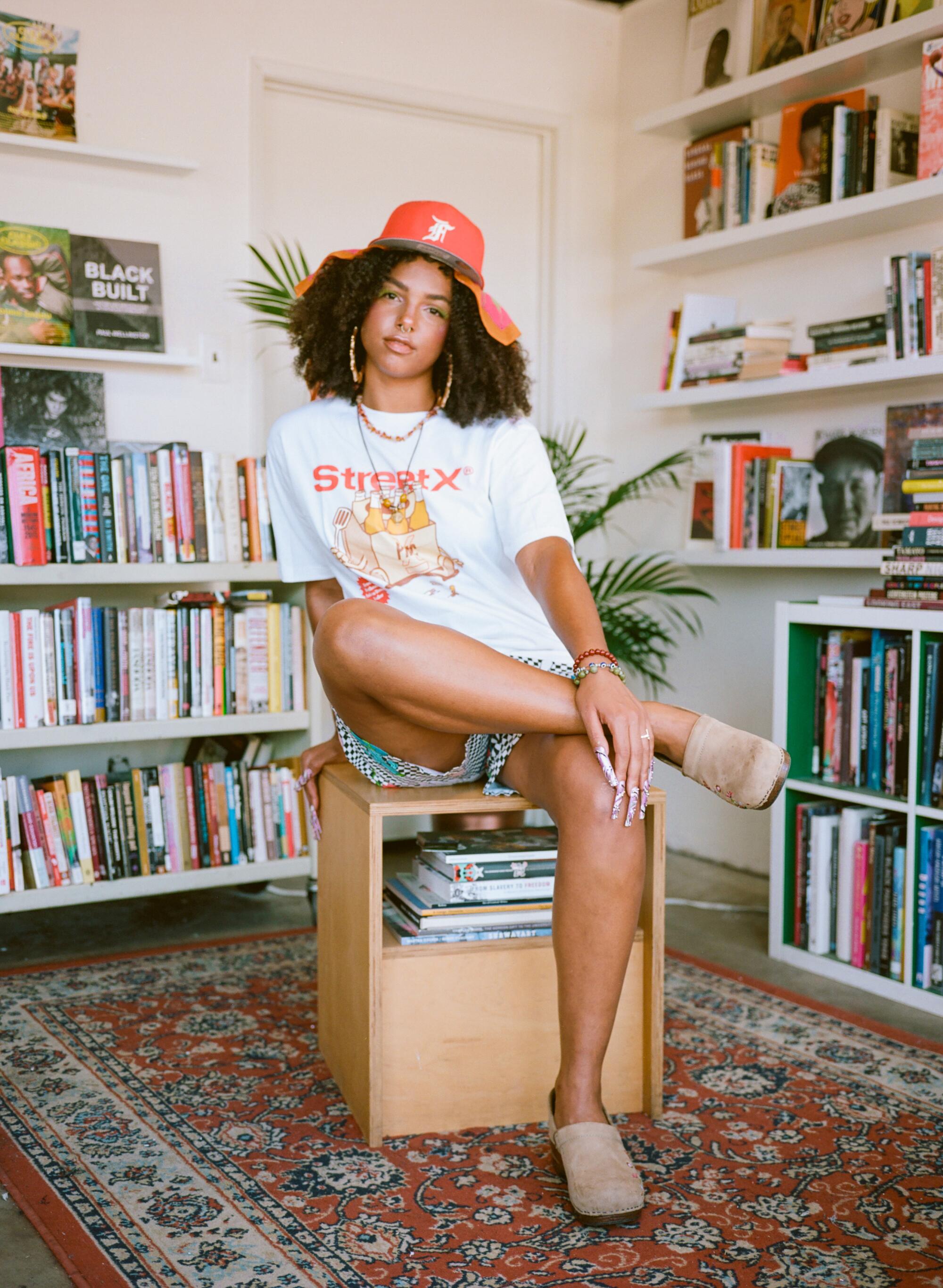
Julissa James: When did you become interested in modeling and why?
Tianna Arata: I was 5 years old and I used to watch the Victoria’s Secret Fashion Show with my mom every year. I was like, “I want to be 5-foot-10. And I want to be a model.” I actually started modeling smaller stuff in San Luis Obispo. There’s a few boutique shops and I just went in randomly, shot my shot. I went into Blackwater boutique — I’d always liked their clothes — and was like, “Hey, how do you choose your models?” From there it picked up. I started doing all their e-commerce, and then I got Sports Warehouse, they have warehouses all over the world.
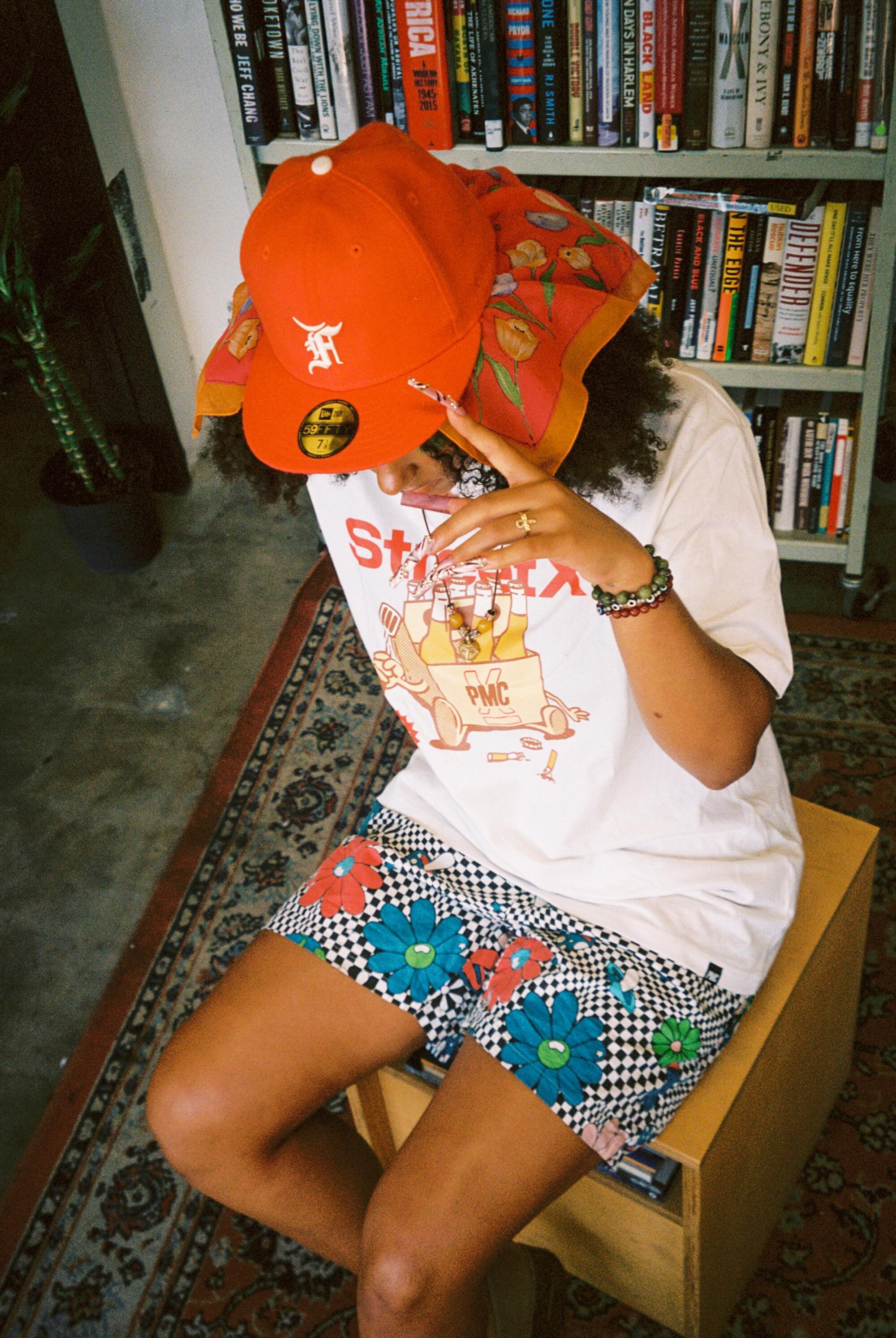
From there, I was like, “Wow. This is actually something I really enjoy. I want to continue this on a more creative level.” Modeling in L.A., I feel like I was blessed to be introduced to some really cool people when I first moved down here, and I’ve maintained that ever since. One of my biggest — it might be my favorite gig that I’ve done — was for the Hundreds. I feel like a lot of people saw it and appreciated it. And I really got to authentically be myself: septum piercing, long nails. I didn’t have to change my image for the shoot at all. They have a whole catalog. I have it posted up in my house. That’s when modeling started getting more real and more tangible to me.
JJ: Yeah, that makes sense. Because it’s like, OK, I’m doing this in my own way.
TA: Exactly. A lot goes on behind photo shoots. Not just: “OK, I have to show up with my makeup done and look cute.” It’s like, “What kind of vibe are the clothes? What am I trying to portray in these images? How am I going to remain authentic?” So yes, I’m modeling for XYZ, but they hired Tianna. I’m going to make that known. I want to not just showcase me and how I look but also my personality through images. That’s the biggest thing for me — finding inspiration that’s very suited and very tailored to me.
Model Sarita Fernandez and makeup artist Selena Ruiz on the power of gassing each other up on set and ending the night at Phở 87.
JJ: With modeling, you’re almost a channel for these things that inspire you.
TA: It’s cool when people hit you up for a shoot and you guys have certain aligning values because, as a model, you are your own brand. And not everybody’s going to like your brand. That is part of it as well. Rejection and being able to take criticism are a part of it. It is about you, but it’s also very much a team effort.
JJ: Did it take you a while to get comfortable in front of the camera?
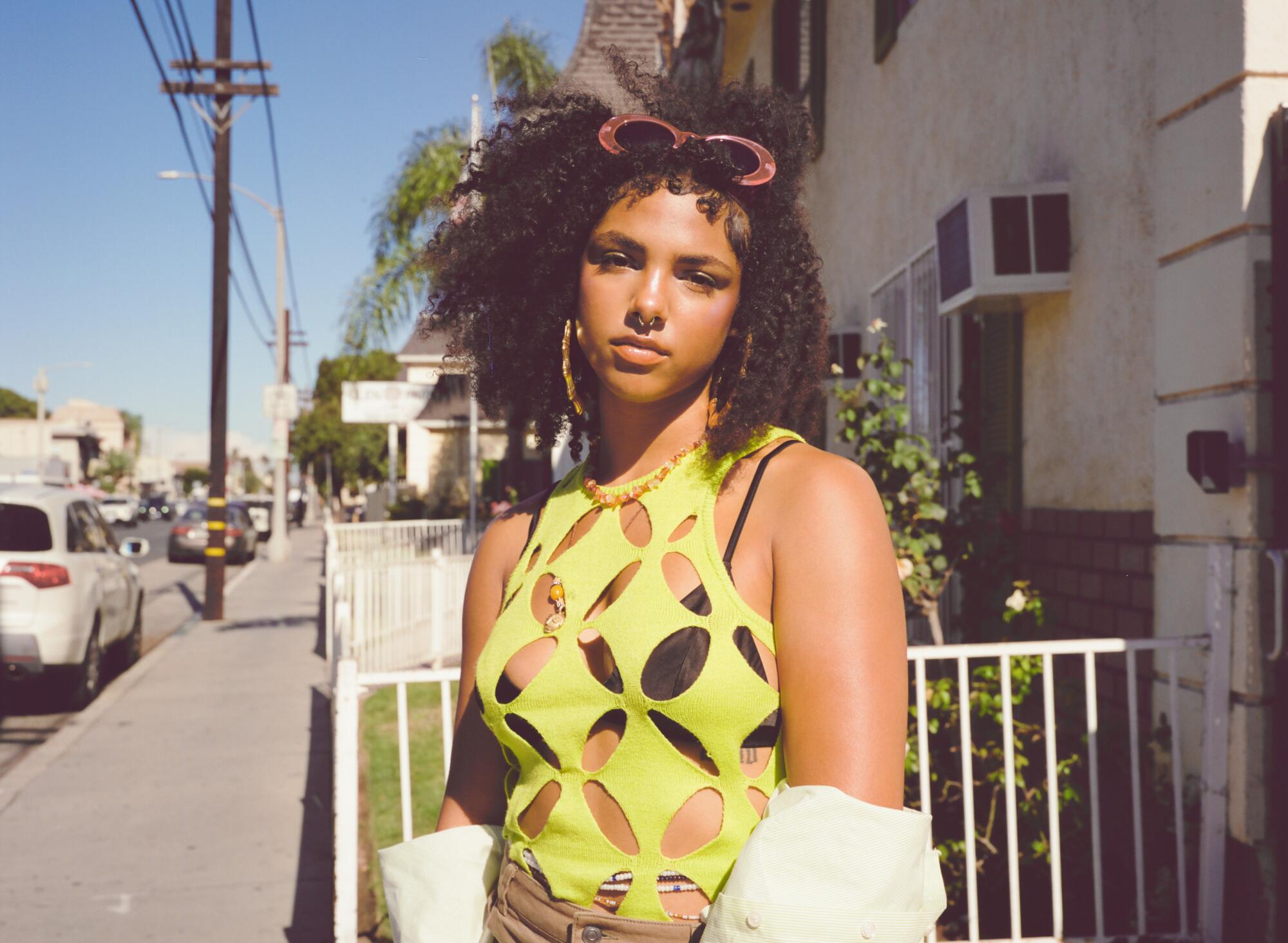
TA: That took a lot of work. You’ll be in the middle of this shoot, and you’ll see the pictures and be like, “Oh, I look freaking awkward.” Or, “That’s not cute, not giving what I thought it was giving.” It’s a lot of correction through the process. A lot of like, “OK. Let me reflect on these pictures. OK, how are we feeling about this?” It takes a lot of growth. You have to learn your angles. You really have to put in a lot of work, especially for posing — like, you have to be [physically] strong for it.
JJ: On a spiritual level, what do you feel when you’re doing this?
TA: As much as I model for other people, I also really love to set up my own shoots, which is really where I get my creative threshold off. I’ll do a set design, I’ll style or I’ll have somebody close to me style. You have to have a lot of faith. Like, “I can do this. I can put this together.” But once I’m creating the set, getting dressed, finishing my makeup, laying my edges, I feel like it’s just a form of art. This is a magic that I get to share with the world. I really showed up, from every angle.
JJ: How long did it take you to realize modeling was an art form?
TA: In high school I was an artist in different forms. I would draw, I would paint — that was my mode of expression. Then when I got older, I was like, “I can be the art myself.” Everything I’m creating is coming from me, coming straight from my mind and my heart and my soul. It probably took me [a] year of modeling to realize this isn’t just imagery. This is creative expression.
JJ: Since 2020, you’ve had your image out in the world in ways that you can’t necessarily control. I’m wondering if modeling has been a way for you to reclaim your image.
TA: Definitely. I made a website for the first time in my life a couple months ago, just to have something out there [from me] because people will tell me all the time, “Oh, I knew I was gonna meet you. I Googled you and I saw XYZ.” With the website, at least [I] get to control my own image. It’s not always like, “Oh, that’s Tianna who got arrested, and she’s still facing charges for protesting and organizing.” That was really hard on my mental health for the first year that I was going through it because it also caused so much instability in my personal, home life. I was constantly moving around. I was constantly not feeling safe in public. And so, for a while, my image wasn’t even what I was worried about. I just needed to make sure that I was safe.
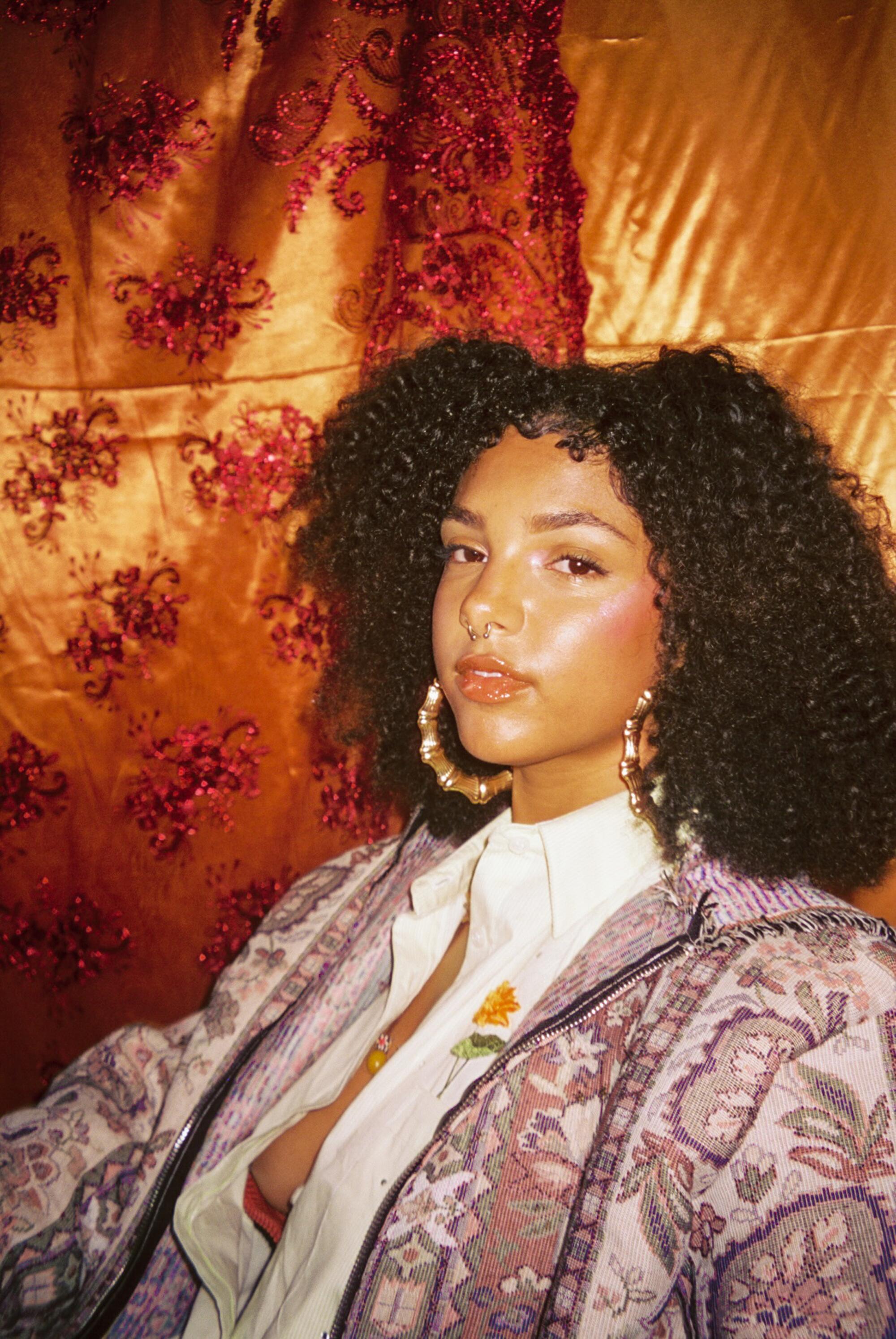
In the last year, because my case has been going on for two years, I’ve [gained] a lot of confidence to be like, “You know what, if anybody’s gonna say XYZ about me, I’m not going to correct you, but I’m just gonna prove who I am through what I do, what I create.” Like, “Yes, people say XYZ happened, but what are you seeing from me right now?” You can’t keep like clinging to something from the past, even though it is monumental. It is a very big deal. I am still dealing with it. It’s also like, “OK, I’m bigger.” That’s only one piece of that puzzle.
Styling by Ayat Maqbool. Lettering design by Vivi Naranjo/For The Times; typeface: Goliagolia/The Designers Foundry.

More stories from Image
